17 laboratories are revealed! NSYSU is committed to cultivating womanpower in science and technology
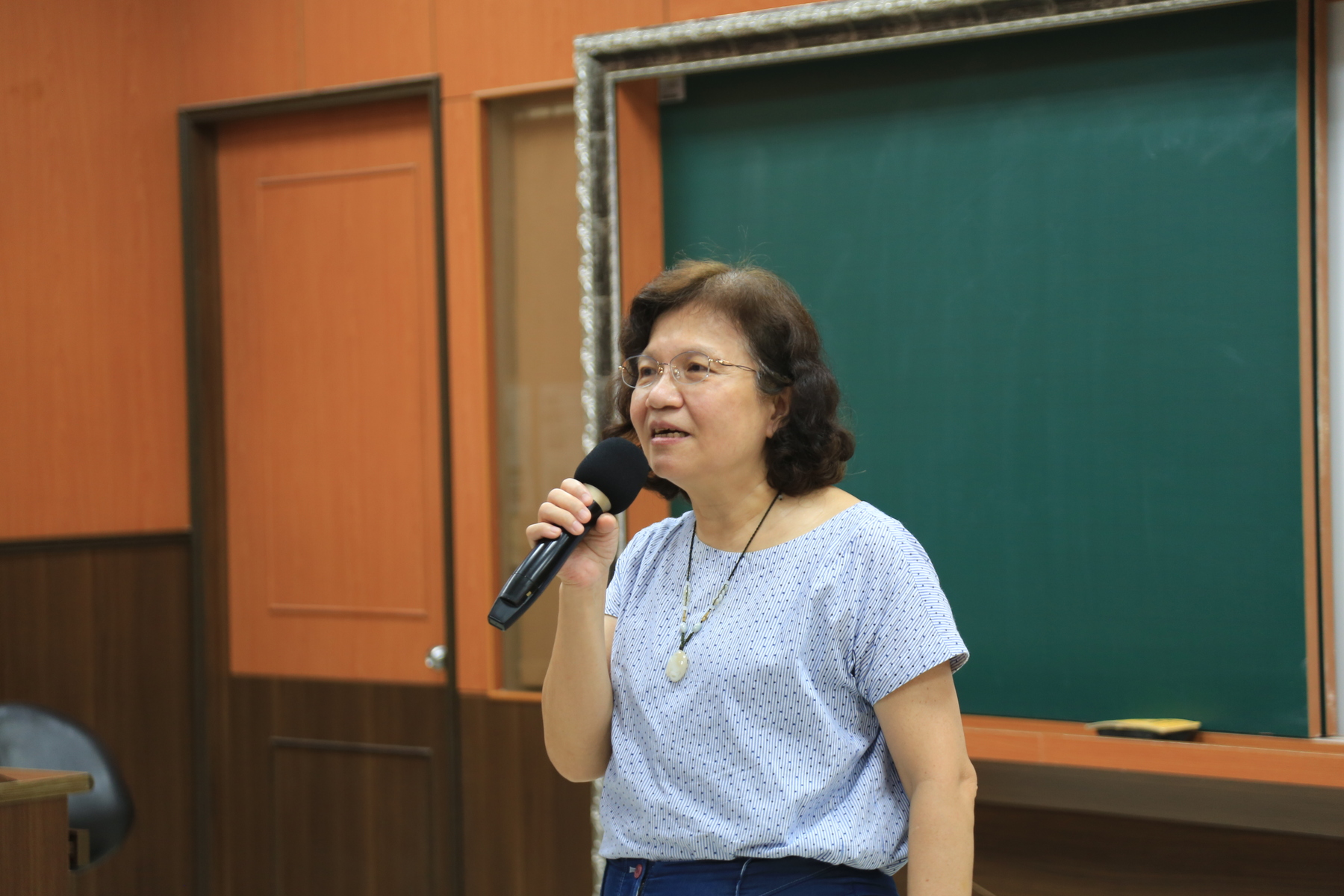
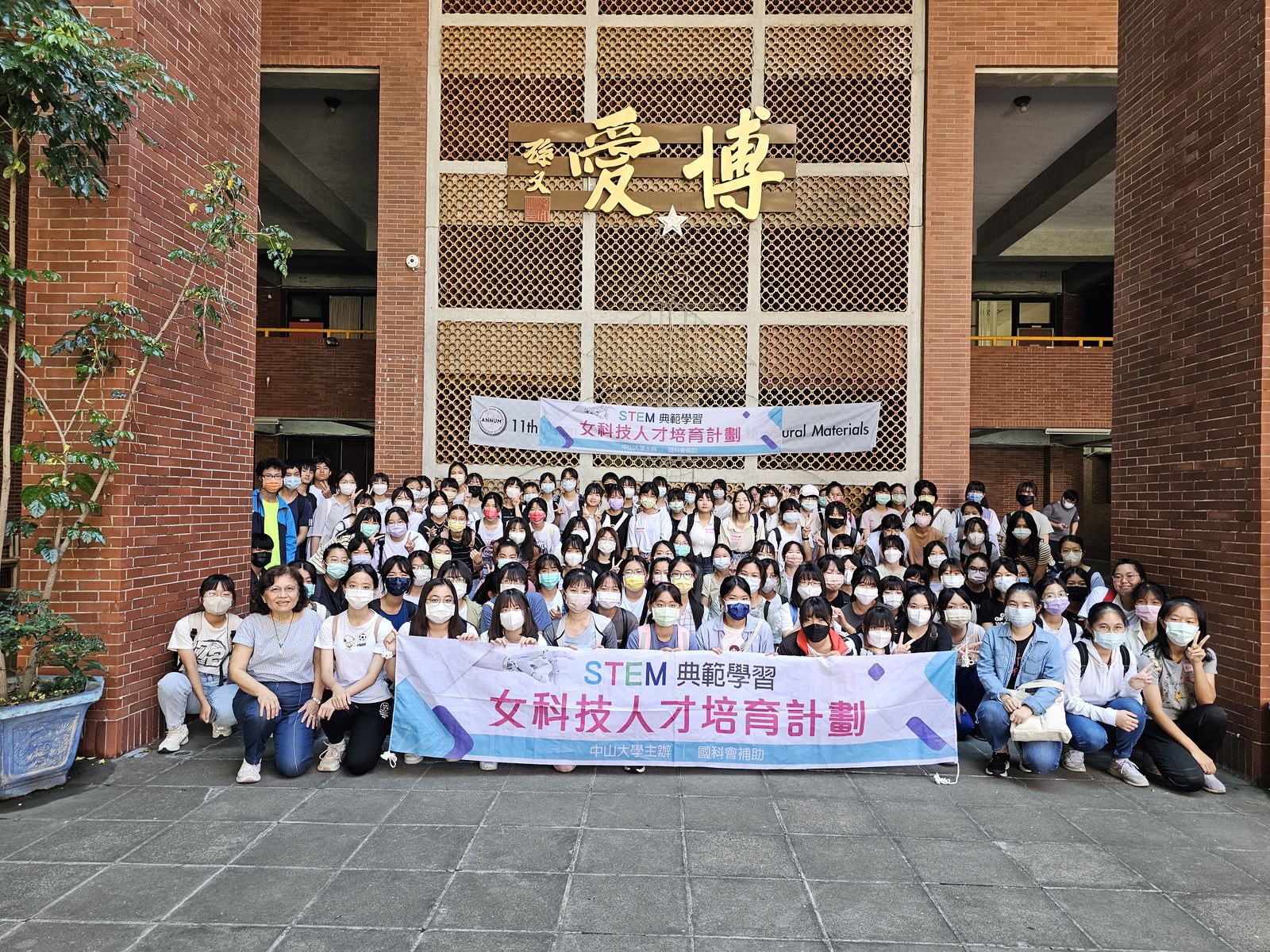
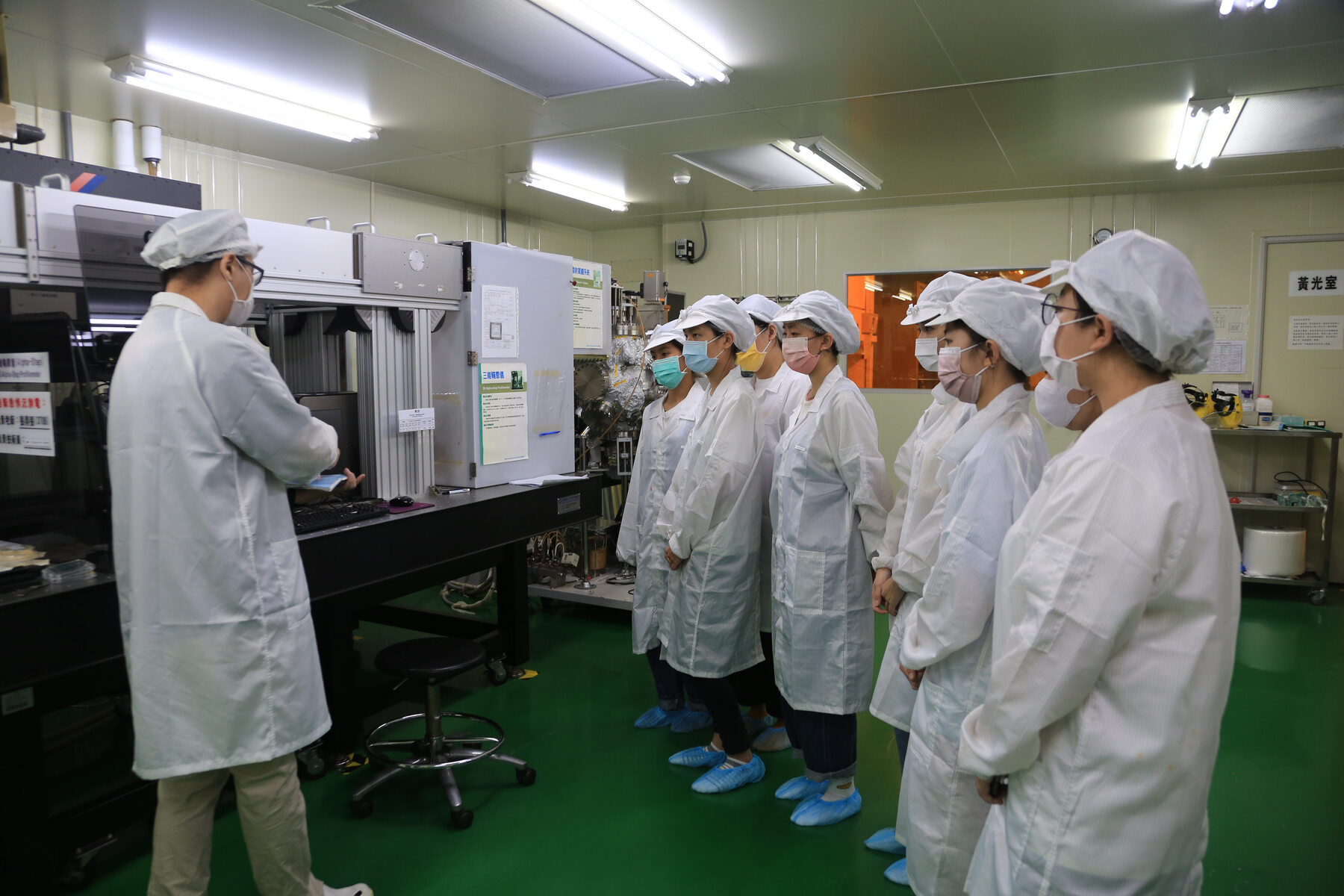
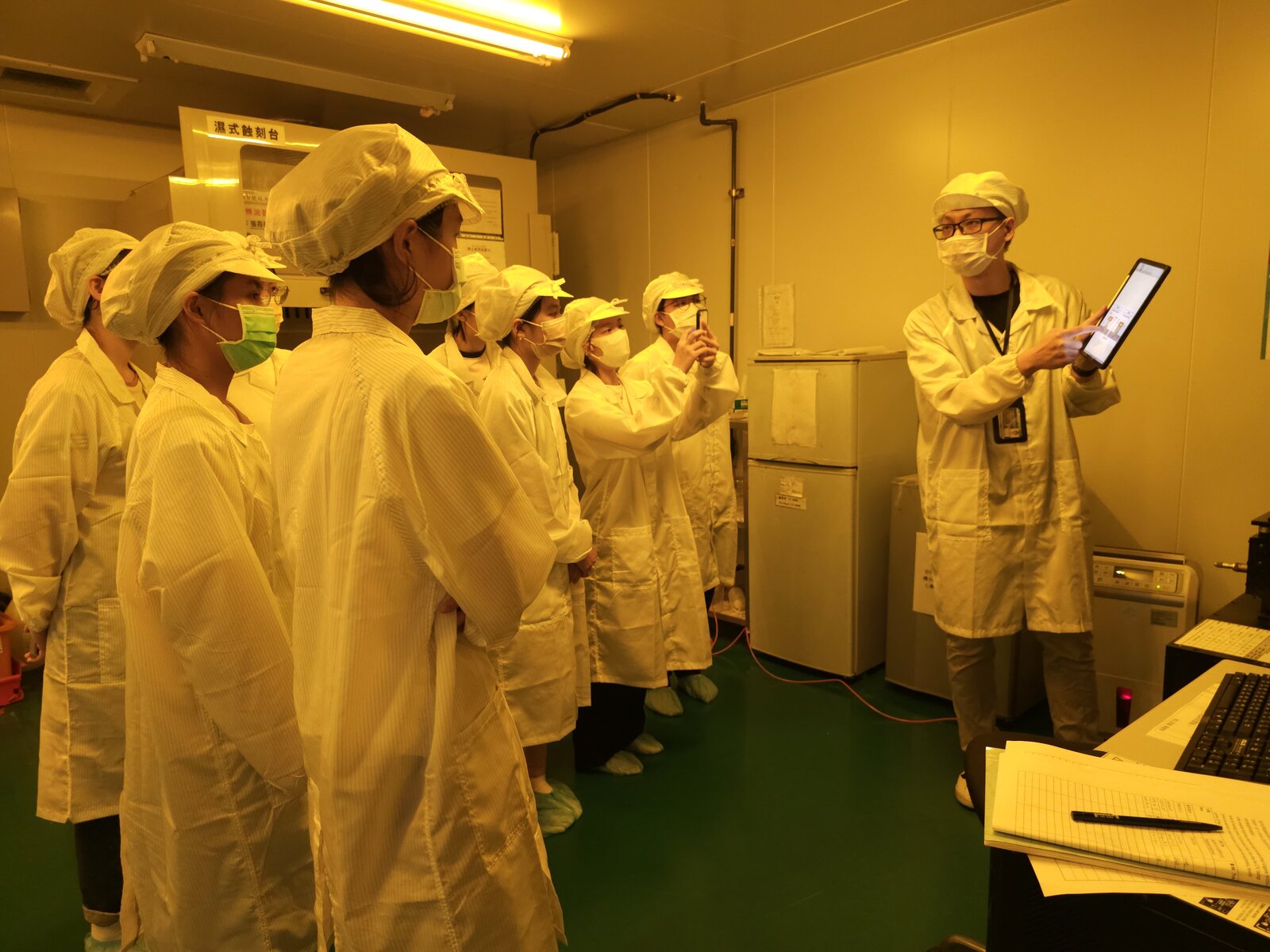
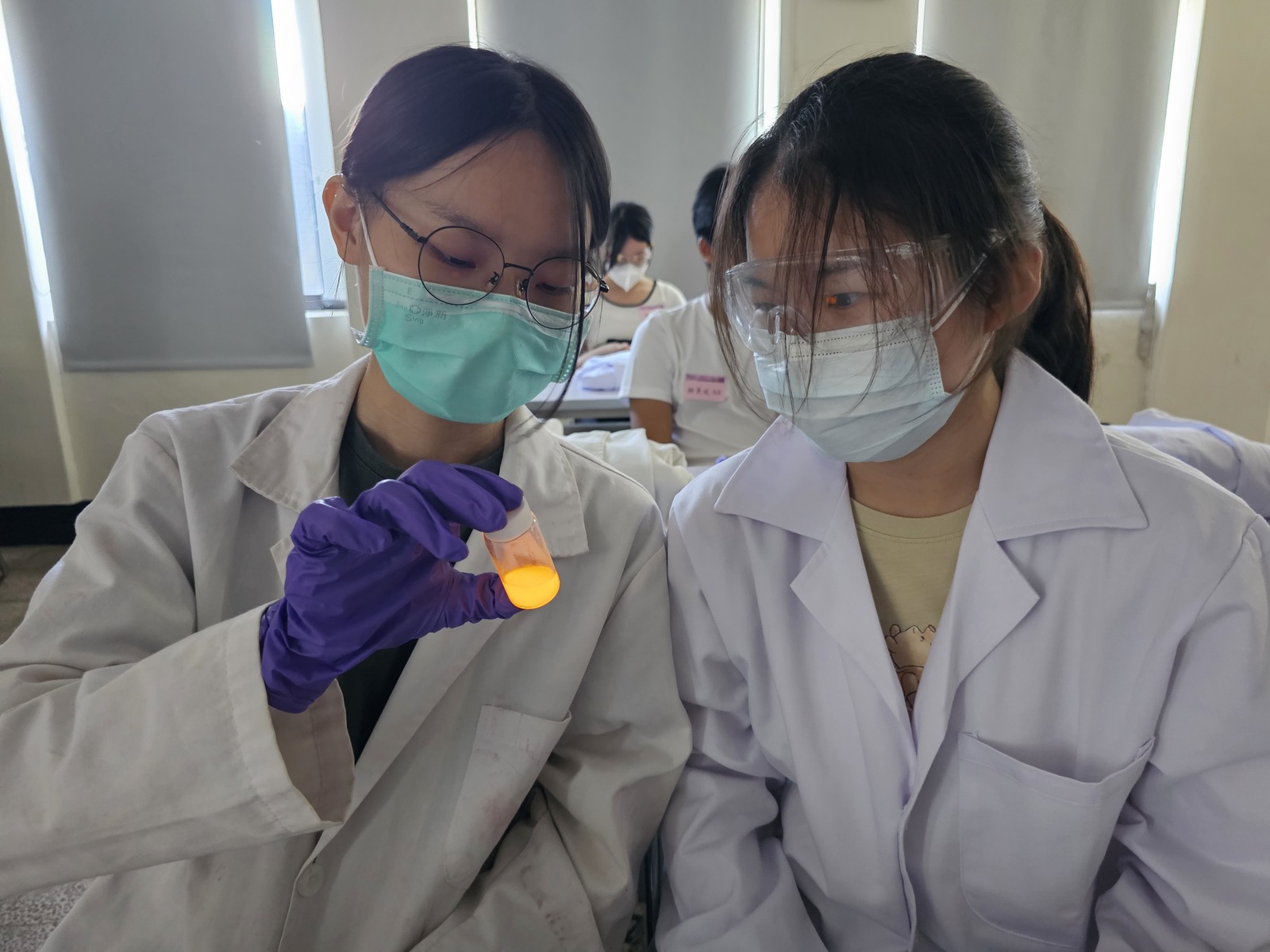
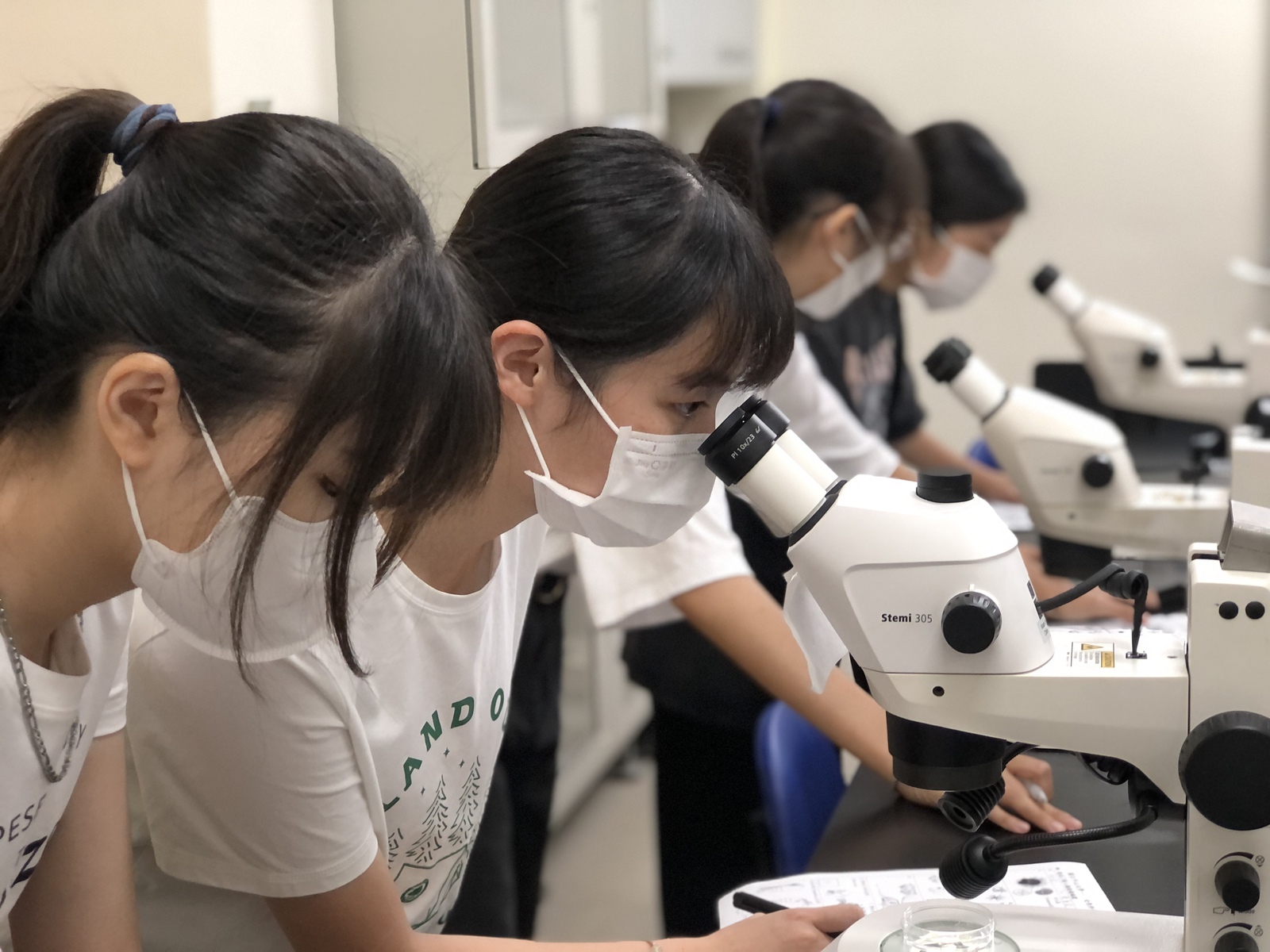
2023-08-29
To encourage more female talents to study in the field of scientific research, National Sun Yat-Sen University (NSYSU) held a Visit to NSYSU’s Laboratories for Female Scientists and Hands-on Experience Camp on July 5th, opening a total of 17 laboratories in the fields of science, engineering, and marine science to on-site visits. A total of 150 female high school students from Tainan, Kaohsiung, and Pingtung explored the mysteries of Semiconductor Nano Devices, Integrated Optoelectronics, Liquid Crystal Photonics, Electro-Optical Modulation, Rapid Screening for Toxicology, Communication Theory, Marine Chemicobiology, Fish Evolution and Ecology, and Underwater Vehicle research laboratories. During the visit, hand-made bioorganic dyes and the operation of an optical dissecting microscope were provided. It is hoped that through the hands-on experience of the visit, female students' interest in scientific and technological research will be stimulated and enhanced.
There are significant gender differences among scientists and engineers working in STEM (Science, Technology, Engineering, and Mathematics) related fields around the world. In recent years, the international community has paid increasing attention to the issue of training female scientific research talents. Shiow-Fon Tsay, the moderator of "Follow STEM Role Model: Female Science and Technology Talent Development Program" of the National Science and Technology Council (NSTC), Distinguished Professor of the Department of Physics, and Vice President of NSYSU, pointed out that the world-renowned academic website Research.com made the top 1,000 rankings for the Highly Cited Index (H-index) of the papers of the world's top female scientists for the first time in 2022. The top three by country are the United States (623), the United Kingdom (96), and Germany (42). Among the Asian countries on the list, from most to least are China (including Hong Kong and Macau; 13), Singapore (2), Japan and India (1 each), and Taiwan does not make the list.
According to data from 107 countries surveyed in the UNESCO SCIENCE REPORT released in 2021, women account for only 33.3% of researchers. According to the 2021 statistical data of R&D manpower in the Survey of National Science and Technology Activity by NSTC, there are 208,660 researchers in Taiwan as a whole, including in enterprises, governments, higher education, and private non-profit sectors, of which 160,370 are men and only 48,290 are women. The proportion of researchers who are women is only 23.1%.
Vice President Tsay said that to encourage more women to join the ranks of scientists, NSYSU has assembled the laboratory resources of teachers in various fields within the school and coordinated the program of future female science and technology researcher experience activities, aiming to balance the current gender imbalance in STEM. This event restarts the on-site visits that were suspended due to the epidemic. It invites female high school students to participate, hoping to spread the seeds of technology, inspire women's self-confidence and motivation to learn STEM, and cultivate more possible future female talents in science and technology.
The Visit to NSYSU’s Laboratories for Female Scientists and Hands-on Experience Camp opened 17 laboratories including the Rapid Screening Research Center for Toxicology and Biomedicine led by Chair Professor Jentaie Shiea of the Department of Chemistry, the Center for High-Value Instrumentation led by Distinguished Professor Wei-Lung Tseng of the Department of Chemistry, the Organometallic Chemistry & Homogeneous Catalysis Lab led by Distinguished Professor Lan-Chang Liang of the Department of Chemistry, the Synthesis and Bioorganic Chemistry Laboratory led by Assistant Professor Yuya Lin of the Department of Chemistry, the Semiconductor Nano Device & TFT Display Lab and Yellow Light Laboratory led by Chair Professor Ting-Chang Chang of the Department of Physics, the Fiber and Quantum Optics Laboratory led by Assistant Professor Yi-Hsin Chen of the Department of Physics, the Liquid Crystal Photonics Lab led by Professor Tsung-Hsien Lin of the Department of Photonics, the Electro-Optical Modulation Lab led by Professor Yi-Jen Chiu of the Department of Photonics, the Integrated Optoelectronic Device Lab led by Professor Yung-Jr Hung of the Department of Photonics, the Functional Polymers and Supramolecular Materials Research Center led by Professor and Chair Shiao-Wei Kuo of the Department of Materials and Optoelectronic Science, the Communication Theory Lab led by Professor Chao-Kai Wen of the Institute of Communications Engineering, the Underwater Vehicle R&D Center led by Associate Professor Yu-Cheng Chou of the Institute of Undersea Technology, the Laboratory for Marine Chemicobiology led by Professor Chih-Chuang Liaw of the Department of Marine Biotechnology and Resources, the Fish Evolution and Ecology Lab led by Professor Te-Yu Liao of the Department of Oceanography, the Coastal Carbon Dynamic Lab led by Associate Professor Wei-Jen Huang of the Department of Oceanography, and the practical activities of optical dissecting microscopes led by Distinguished Professor Meng-Hsien Chen of the Department of Oceanography.
To encourage more female talents to study in the field of scientific research, National Sun Yat-Sen University (NSYSU) held a Visit to NSYSU’s Laboratories for Female Scientists and Hands-on Experience Camp on July 5th, opening a total of 17 laboratories in the fields of science, engineering, and marine science to on-site visits. A total of 150 female high school students from Tainan, Kaohsiung, and Pingtung explored the mysteries of Semiconductor Nano Devices, Integrated Optoelectronics, Liquid Crystal Photonics, Electro-Optical Modulation, Rapid Screening for Toxicology, Communication Theory, Marine Chemicobiology, Fish Evolution and Ecology, and Underwater Vehicle research laboratories. During the visit, hand-made bioorganic dyes and the operation of an optical dissecting microscope were provided. It is hoped that through the hands-on experience of the visit, female students' interest in scientific and technological research will be stimulated and enhanced.
There are significant gender differences among scientists and engineers working in STEM (Science, Technology, Engineering, and Mathematics) related fields around the world. In recent years, the international community has paid increasing attention to the issue of training female scientific research talents. Shiow-Fon Tsay, the moderator of "Follow STEM Role Model: Female Science and Technology Talent Development Program" of the National Science and Technology Council (NSTC), Distinguished Professor of the Department of Physics, and Vice President of NSYSU, pointed out that the world-renowned academic website Research.com made the top 1,000 rankings for the Highly Cited Index (H-index) of the papers of the world's top female scientists for the first time in 2022. The top three by country are the United States (623), the United Kingdom (96), and Germany (42). Among the Asian countries on the list, from most to least are China (including Hong Kong and Macau; 13), Singapore (2), Japan and India (1 each), and Taiwan does not make the list.
According to data from 107 countries surveyed in the UNESCO SCIENCE REPORT released in 2021, women account for only 33.3% of researchers. According to the 2021 statistical data of R&D manpower in the Survey of National Science and Technology Activity by NSTC, there are 208,660 researchers in Taiwan as a whole, including in enterprises, governments, higher education, and private non-profit sectors, of which 160,370 are men and only 48,290 are women. The proportion of researchers who are women is only 23.1%.
Vice President Tsay said that to encourage more women to join the ranks of scientists, NSYSU has assembled the laboratory resources of teachers in various fields within the school and coordinated the program of future female science and technology researcher experience activities, aiming to balance the current gender imbalance in STEM. This event restarts the on-site visits that were suspended due to the epidemic. It invites female high school students to participate, hoping to spread the seeds of technology, inspire women's self-confidence and motivation to learn STEM, and cultivate more possible future female talents in science and technology.
The Visit to NSYSU’s Laboratories for Female Scientists and Hands-on Experience Camp opened 17 laboratories including the Rapid Screening Research Center for Toxicology and Biomedicine led by Chair Professor Jentaie Shiea of the Department of Chemistry, the Center for High-Value Instrumentation led by Distinguished Professor Wei-Lung Tseng of the Department of Chemistry, the Organometallic Chemistry & Homogeneous Catalysis Lab led by Distinguished Professor Lan-Chang Liang of the Department of Chemistry, the Synthesis and Bioorganic Chemistry Laboratory led by Assistant Professor Yuya Lin of the Department of Chemistry, the Semiconductor Nano Device & TFT Display Lab and Yellow Light Laboratory led by Chair Professor Ting-Chang Chang of the Department of Physics, the Fiber and Quantum Optics Laboratory led by Assistant Professor Yi-Hsin Chen of the Department of Physics, the Liquid Crystal Photonics Lab led by Professor Tsung-Hsien Lin of the Department of Photonics, the Electro-Optical Modulation Lab led by Professor Yi-Jen Chiu of the Department of Photonics, the Integrated Optoelectronic Device Lab led by Professor Yung-Jr Hung of the Department of Photonics, the Functional Polymers and Supramolecular Materials Research Center led by Professor and Chair Shiao-Wei Kuo of the Department of Materials and Optoelectronic Science, the Communication Theory Lab led by Professor Chao-Kai Wen of the Institute of Communications Engineering, the Underwater Vehicle R&D Center led by Associate Professor Yu-Cheng Chou of the Institute of Undersea Technology, the Laboratory for Marine Chemicobiology led by Professor Chih-Chuang Liaw of the Department of Marine Biotechnology and Resources, the Fish Evolution and Ecology Lab led by Professor Te-Yu Liao of the Department of Oceanography, the Coastal Carbon Dynamic Lab led by Associate Professor Wei-Jen Huang of the Department of Oceanography, and the practical activities of optical dissecting microscopes led by Distinguished Professor Meng-Hsien Chen of the Department of Oceanography.
Click Num:
Share
